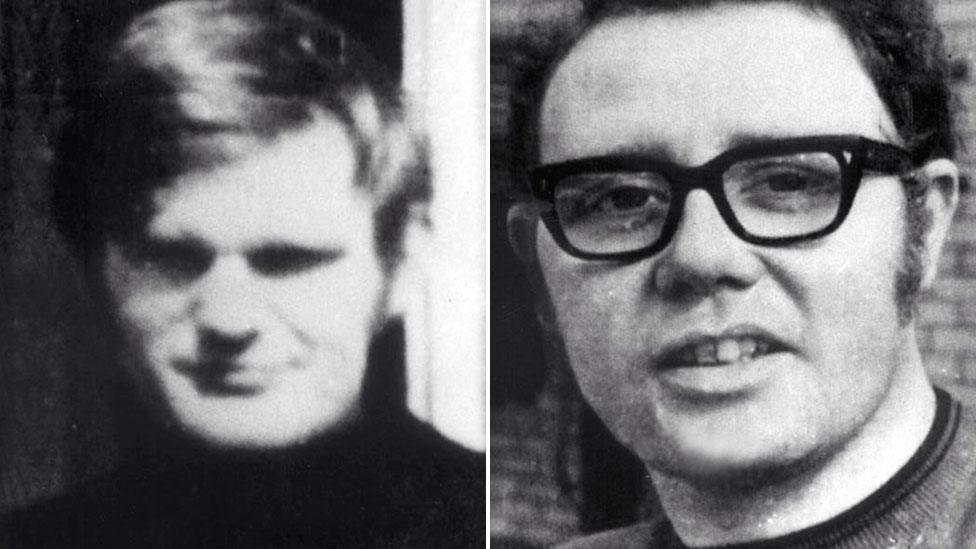Bloody Sunday: Soldier F could appear in court remotely
- Published

James Wray and William McKinney were among 13 people shot dead at a civil rights march on 30 January 1972.
An ex-British soldier facing prosecution for two murders on Bloody Sunday could appear in court remotely in Londonderry in July.
At a hearing at the city's magistrate's court on Wednesday, a judge said it is likely the ex-paratrooper, known as Soldier F, will appear at a committal hearing via electronic means.
He is charged with the murders of James Wray and William McKinney.
He is also charged with the attempted murder of five other people.
District Judge Ted Magill told the court his intention was for proceedings to go ahead on 16 July as scheduled.
He said he was mindful of the advice from the Lord Chief Justice that only emergency court matters should be dealt with at present due to the coronavirus pandemic.
But he said he was looking at the July date "in the optimistic expectation that things will have improved considerably by then".
Contested committal proceedings are due to be heard in July
The court was trying to progress matters as expeditiously as possible, he said.
Judge Magill said he was "balancing the situation we find ourselves in with the needs of justice".
The judge said that if everyone else was appearing at the July proceedings electronically then to require Soldier F "to come to court in person would be disproportionate".
He added that Soldier F was over 70 and the current advice was that that age group should be shielding.
Thirteen people were killed and 15 wounded when members of the Army's Parachute Regiment opened fire on civil rights demonstrators in Derry on Sunday, 30 January 1972.
The day became known as Bloody Sunday.
The Northern Ireland Public Prosecution Service decided in March 2019 that Soldier F, as he was known at the Bloody Sunday public inquiry, would be the only ex-paratrooper to be charged.